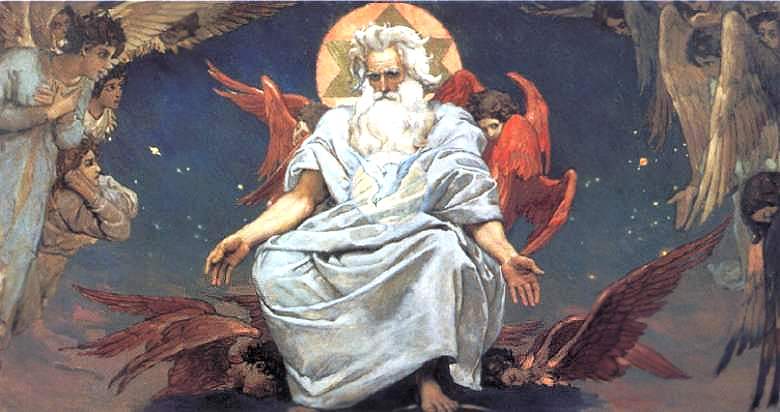 [Love-2.1-11] Why are Love, Knowledge, Wisdom, and Goodness said to be infinite and eternal in God, capable of no Increase or Decrease, but always in the same highest State of Existence? Why is his Power eternal and omnipotent, his Presence not here, or there, but everywhere the same? No Reason can be assigned, but because nothing that is temporary, limited, or bounded, can be in God. It is his Nature to be that which He is, and all that He is, in an infinite, unchangeable Degree, admitting neither higher, nor lower, neither here nor there, but always, and everywhere, in the same unalterable State of Infinity. If therefore Wrath, Rage, and Resentment could be in the Deity itself, it must be an unbeginning, boundless, never-ceasing Wrath, capable of no more, or less, no up or down, but always existing, always working, and breaking forth in the same Strength, and everywhere equally burning in the Height and Depth of the abyssal Deity. There is no medium here; there must be either all or none, either no Possibility of Wrath, or no Possibility of its having any Bounds. And therefore, if you would not say, that every Thing that has proceeded, or can, or ever shall proceed from God, are and can be only so many Effects of his eternal and omnipotent Wrath, which can never cease, or be less than infinite; if you will not hold this monstrous Blasphemy, you must stick close to the absolute Impossibility of Wrath having any Existence in God. For nothing can have any Existence in God, but in the Way and Manner as his Eternity, Infinity, and Omnipotence have their Existence in him. Have you any Thing to object to this? God’s nature is To Be for Eternity. He has neither beginning nor end. His attributes are as eternal as His Being. This means that God does not change. His love, knowledge, wisdom, and goodness are forever the same as perfectly active expressions of His Being. If God’s attributes were contrary to the virtues that we describe, then, for example, He would be perfectly wrathful, rage-riddled, and resentful. But God is no such thing. This is not to say, however, that God is not experienced through these attributes when fallen men choose alienation from His love, knowledge, wisdom, and goodness. Fallen and Damned man will experience love as wrath when he rejects Divine love. He will experience knowledge as ignorance when he rejects Divine knowledge, and so forth. The Way and Manner of God’s Eternity, Infinity, and Omnipotence is only virtuous. One might say that God’s love rejected, felt as wrath, is nevertheless the love that gives to sinners what they desire. Love respects man’s rejection of Him and thus lovingly allows man to go to Hell. Only love can respect the created integrity of human free will. Is this an expression of pure love? Of course. Pure love never forces Himself on anyone. Pure love allows the sinner to endure his sin forever if he so chooses. Pure love still loves absolutely. The problem for the Hell-bound sinner is that he does not want to be loved in God’s love. In so far as the sinner’s lost love is poured into other loves, he will enjoy the degree to which he loved others more than God in Hell. Those in Hell are loved in God’s love to the degree that they desires it, which is to say, in competition with other loves and thus not as Pure Love at all. [Love-2.1-12] Theogenes. Indeed, Theophilus, both Eusebius and myself have been from the first fully satisfied with what has been said of this Matter in the Book of Regeneration, the Appeal, and the Spirit of Prayer, &c. We find it impossible to think of God as subject to Wrath, or capable of being inflamed by the Weakness, and Folly, and Irregularity of the Creature. We find ourselves incapable of thinking any otherwise of God, than as the one only Good, or, as you express it, an eternal immutable Will to all Goodness, which can will Nothing else to all Eternity, but to communicate Good, and Blessing, and Happiness, and Perfection to every Life, according to its Capacity to receive it. God only and ever wills the Good. He communicates Good, Blessing, Happiness, and Perfection to all life. He offers it to man as what man must choose and will into his own life. To say that His goodness is necessarily present to all is true only in a limited sense. His goodness is present to all as the animating principle of preserved existence. However, the man who retains this goodness is only partially in possession of the Goodness that God wills for him. A greater goodness is found in the Grace that informs the moral life and will carry a man to the Kingdom. This Grace can be had only by an act of will. Once a man wills it, he is in possession of a greater portion of God’s goodness than the man who ignore the offer of it. The portion of God’s goodness increases when it is received with gratitude, applied with diligence, and enjoyed with satisfaction in the God-fearing soul. Comments are closed.
|
St. Michael and All Angels Sermons:
|


 RSS Feed
RSS Feed